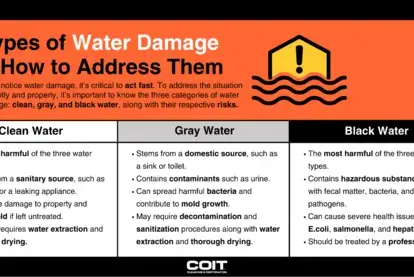
How to Reduce Allergen Levels in Your Seattle Home
Living in Seattle means frequent damp weather and dense forests, and that means your home can quickly become a hotspot for allergens.
If you're sneezing more while indoors or finding that your allergies are getting worse, your air ducts might be part of the problem. And while we can't control the pollen or the rain outside, we can do something about the allergens inside our homes.
Breathing clean air indoors is really important for our health, especially if you haveallergies. Here's how you can help combat the allergen levels in your home:
The Role of Air Ducts in Allergens
Air ducts are like the lungs of our homes. They pull in air and push it out. But, just as lungs can get clogged, so can air ducts.
Pollen, pet dander, dust mites—all these allergens can easily enter our homes and stick around in the air ducts.
If left unchecked, these dirty air ducts blow these allergens back into our living spaces, leading to poor indoor air quality. That’s where air duct cleaning comes in.
What are the Benefits of Air Duct Cleaning?
There are many benefits to air duct cleaning, including:
- Reducing allergen levels significantly
- Preventing mold growth from moisture
- Increasing the efficiency of your HVAC system
- Extending the lifespan of your air ducts
Why Regular Cleaning Matters
Think of the many things you clean regularly in your home: floors, counters, windows. Your air ducts should be no different. The more frequent the cleaning, the less likely allergens will accumulate.
With Seattle's varying seasonal allergens, keeping a consistent cleaning schedule is a proactive approach to maintaining a healthier home environment.
Contact COIT for a professional cleaning!
Seasonal Allergies in Seattle
Seattle's seasonal allergens shift as the year progresses and are only getting worse as climate change lengthens the pollen season.
In spring, tree pollen dominates, causing many people to start sniffling. By summer, grass pollen becomes the main culprit. Come fall, it's the weed pollens you'll want to watch out for.
Why Seattle’s Climate Makes Mold and Winter Allergies Worse
Seattle’s consistent rainfall and mild winters mean moisture is a year-round issue.
Homes that aren’t well-ventilated or lack proper humidity control are especially vulnerable to mold growth, which contributes to winter allergies. High indoor humidity during heating season exacerbates both mold and dust mite populations.
Whether you’re battling mold allergies or winter allergens, creating a healthier indoor environment starts with the right cleaning and prevention strategies. From professional air duct cleaning to mold remediation, COIT has the tools and expertise to help you breathe easier.
Contact us today to learn more about our services and schedule your next cleaning appointment.
Mold Allergies in Seattle
Seattle’s damp climate creates the perfect environment for mold to thrive.
Mold spores can spread through your home, triggering allergic reactions such as sneezing, coughing, itchy eyes, and respiratory issues. Mold exposure can be particularly harmful for those with asthma or weakened immune systems.
How to Reduce Mold Allergies at Home:
- Control Humidity Levels: Use a dehumidifier to keep indoor humidity below 50%.
- Fix Water Leaks: Address leaks in roofs, windows, or plumbing immediately to prevent mold growth.
- Ventilate High-Moisture Areas: Ensure bathrooms, kitchens, and laundry rooms are well-ventilated. Consider installing exhaust fans or opening windows when possible.
- Professional Mold Remediation: If you suspect mold in hidden areas like behind walls or inside ducts, call professionals like COIT. Our mold remediation services can identify and safely remove mold from your home.
Winter Allergies in Seattle
While spring and summer bring pollen allergies, winter in Seattle is marked by indoor allergens. Dust mites, mold, and pet dander thrive in closed, heated environments during colder months.
How to Combat Winter Allergies:
- Keep HVAC Systems Clean: Dirty air ducts circulate allergens like mold spores and dust mites. COIT’s professional air duct cleaning removes these contaminants, improving indoor air quality.
- Upgrade HVAC Filters: Use HEPA filters in your HVAC system to trap smaller allergen particles effectively.
- Regular Dusting and Vacuuming: Clean surfaces and floors frequently with a vacuum equipped with a HEPA filter.
- Wash Bedding Weekly: Dust mites often hide in bedding, so wash sheets in hot water at least once a week.
Choosing Professionals for the Job
While there are many DIY methods to tackle cleaning tasks, air ducts are a bit more complicated. For a thorough cleaning that reaches every nook and cranny, consider hiring professionals.
Coit specializes in residential and commercial air duct cleaning in Seattle. With our expertise, you can ensure that your air ducts are not just superficially clean, but actually free from allergens.
Allergen-Proofing Your Seattle Home
Beyond cleaning, there are other ways to allergen-proof your home:
Invest in Quality Door Mats
Placing mats both outside and inside your main entrances can trap pollen and other allergens and prevent them from entering your living space.
Window Management
During high pollen seasons, try to keep your windows closed during peak hours (typically early morning and late evening).
Shoe Policy
Consider having a no-shoe policy indoors or designate an area where everyone can leave their shoes. This minimizes the amount of pollen and other particles that get tracked into your home.
Stay Informed
Check local pollen forecasts and stay updated about high pollen days. This can help warn you on when you might need to take extra precautions.
More Tips to Combat Allergens
- Use air purifiers to trap allergens from the air and give you an extra layer of protection.
- Keep your home’s humidity in check with a dehumidifier to help reduce mold growth and dust mites.
- Include air duct cleaning as part of your spring cleaning routine.
- Vacuum regularly, using a vacuum with HEPA filters to help trap allergens.
- Replace your HVAC system's filters regularly. They trap a lot of dust and debris, and once they're full, they can't do their job as well.
Remember, a clean home isn't just about aesthetics—it's about health. And with experts like Coit at your side, achieving that clean, allergen-free space is easier than ever.
Learn more about residential and commercial air duct cleaning in Seattle.



